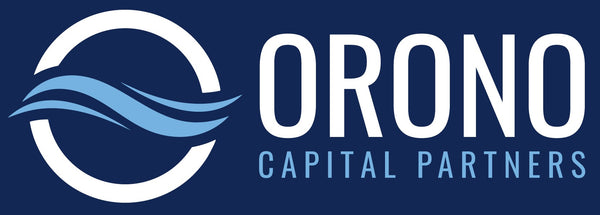
How is a Search Fund Different than an Independent Sponsor?
David ShulerWhile the independent sponsor strategy has become prolific in the lower middle market in recent years, another strategy for entrepreneurial-minded acquisition professionals has quietly emerged in popularity over the last 10 years: the "search fund"
A search fund is an individual or team that receives capital backing from an investor(s), then proceeds to find a company to invest in, and post-closing they operate the business as its senior leaders. But how the team accomplishes such an endeavor is fascinating and unlike other independent sponsor transactions.
Many search funds are borne out of the graduate business school programs, such as Stanford, Wharton, Michigan, UVA, and more. Often times these programs have a class entitled "Entrepreneurship through Acquisition" or similar, led by a professor who either has been an investor or knows the clubs from that schools' alumni base, and can introduce the MBA students' path to this career pursuit following the MBA program. The search fund entrepreneurs may have a background in private equity, consulting, and an operations background. Interestingly, prior CEO experience is generally not required.
Here's how the strategy works.
First, the searchers start by defining an investment thesis or targeted industry. For example, niche metal components in the Midwest for agricultural equipment with a retiring CEO. Once the searchers identify a business and close the transaction, they are prepared to move to wherever the business is found and become its management team, whether the company is in Little Rock, Topeka or Grand Rapids.
Next step is finding capital support. In the early days of search funds, capital was tough to raise and involved lots of "pass the hat" conversations. Today, there exists an untold number of investor "clubs" who have co-invested together in other search fund entrepreneurs, and had enough success to want to invest in another. These investors are still by and large high net worth individuals, often times retired PE professionals or seasoned executives, who can be mentors or board advisors post-closing. Occasionally investors may even refer proprietary opportunities they uncover to the searchers. The searcher generally needs to solidify a lead investor, who then vouches for the strategy and approaches the "club" of investors that have done other such co-investments together. It's not uncommon for a $10 MM search to have 30-40 investors, and not uncommon for those investors to have 20+ such search fund investments. However, various institutional capital providers have emerged to back these search fund entrepreneurs as well.
The investor generally agrees to two things: a) preliminary, non-binding interest in a certain portion of a $XX equity capital raise ($10 MM, let's say) for fund a prospective investment once discovered; and b) a willingness to fund that same pro rata portion for a "marketing budget" for the searchers, such as $500k total ($250k/year) for two years, let's say. The marketing budget would fund a modest salary for the searchers, plus pay travel, rent, deal marketing expenses, and provide coverage for broken deal expenses. In exchange for funding the marketing budget, the investors are not only ensured an opportunity to invest in the prospective investment the searchers present, but also will generally receive preferential economics for the marketing budget portion they invested upfront (since that has greater capital risk). The investors are not obligated to invest in the prospective investment, however, if they have strong objection to the deal and/or their circumstances change, but they would be forfeiting however much they contributed to the marketing budget. Further, if the two-year period ends without the searchers finding a company, the parties generally part ways and investors simply write off the investment.
At first glance it appears the investor is taking a fair amount of upfront capital risk. However, investors in this asset class believe the risk is mitigated by taking a portfolio approach to investing. By committing to the strategy of backing smart, hard-working searchers, enough deals will prevail and be successful. By committing a small amount for marketing budget (which breaks down to something nominal like $10-20k per investor) to back enough searchers, then enough deals will close, and preferential economics on the marketing budgets will compensate for the others that spend two years searching without success and then abandon ship.
Once the thesis is defined, capital is soft-circled and the marketing budget has been funded, next step is hunting for deals. Those searchers who come from an acquisitions background have an advantage, but even those searchers who are joining from other professions learn quickly how to create a deal funnel. The search for target companies generally involve not only joining every database, but often times working a list of cold emails or cold calls to build a funnel of acquisition targets within the stated industry or interest. Not unlike other proprietary deal searches, there can be long sales cycles to find a platform, and therefore having a full two years to source and close a transaction is necessary.
Once the deal closes, the searchers join the senior leadership team and begin the work of building the platform. They are in the trenches and focused full-time on the business, as opposed to independent sponsor approach of only being involved at board level. The searchers' compensation post-closing will generally consist of a salary and bonus paid by the company (just like any other employee), that is commensurate with EBITDA size and stock options in the business. In practice, those economics are similar to management fees and carried paid to sponsors.
There are advantages and disadvantages to pursuing acquisitions as a search fund. The advantages are having the capital support upfront, a marketing budget while searching, and coverage for potential broken deal expenses. For those looking to get close to the action and run a company, this offers outstanding leadership opportunity. The disadvantages are that the searchers have limited ability to pivot from their stated thesis, and are committed full-time to the business post-closing, wherever that location might be. If company or industry factors do not result in company growth, then the upside might be non-existent. An independent sponsor, in contrast, can have a portfolio of companies and deal-by-deal economics, giving them more "at bats" from which to have a good performer.
Both of these strategies are viable in today's sophisticated lower middle market ecosystem, and the searcher or sponsor would be wise to consider all the pro's and con's before boldly pursuing their strategy. Although we do not raise upfront investment capital for searchers, we would be delighted to help with equity or debt capital support once the platform is identified.
